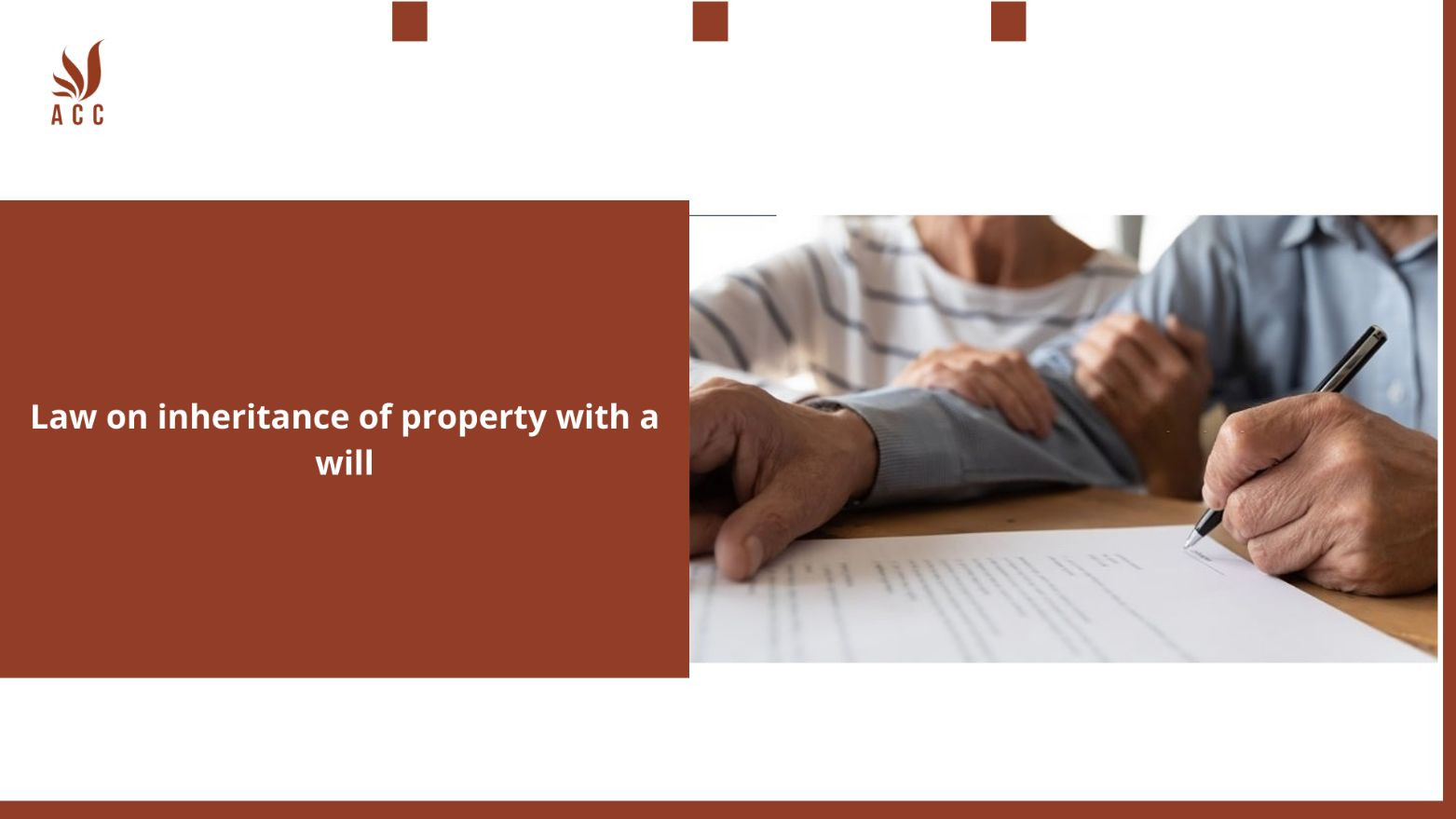The laws governing the inheritance of property with a will vary by jurisdiction, but there are some common principles and guidelines that generally apply. Here are the key aspects of inheritance of property with a will:
1. Valid Will:
To inherit property through a will, the first requirement is that the will must be valid. This means that the will was created by a person who had the legal capacity to make a will, and it must comply with the formal legal requirements of the jurisdiction where it was created. These requirements typically include signatures, witnesses, and other formalities.

2. Executor:
The will typically designates an executor, also known as a personal representative, whose role is to carry out the instructions in the will. The executor's responsibilities include gathering and managing the deceased person's assets, paying debts and taxes, and distributing the property to the beneficiaries as specified in the will.
3. Beneficiaries:
Beneficiaries are individuals or entities named in the will to receive specific property or assets. The will should clearly outline who the beneficiaries are and describe the property or assets they are entitled to inherit.
4. Specific Bequests:
A will may include specific bequests, where certain assets or property are left to specific individuals or organizations. These bequests should be clearly stated in the will.
5. Residue Clause:
The will often includes a residue clause, which specifies how any remaining property or assets not covered by specific bequests should be distributed. It is a catch-all provision that ensures no property is left without instructions.
6. Debts and Taxes:
Before property can be distributed to beneficiaries, any outstanding debts, including funeral expenses and estate administration costs, must be settled from the deceased person's estate. Taxes owed by the estate must also be addressed.
7. Challenges and Contests:
While a valid will is generally presumed to represent the deceased person's wishes, interested parties may contest the will's validity or its provisions in certain circumstances. Common grounds for contesting a will include claims of undue influence, lack of capacity, fraud, or improper execution.
8. Q&A
Q1. What is the law on inheritance of property with a will?
- The law on inheritance of property with a will governs how a deceased person's assets and property are distributed according to their wishes as expressed in their will. The specific laws vary by jurisdiction, but generally, they outline the legal requirements for creating a valid will, the rights and responsibilities of the executor or personal representative, and the process for distributing the assets to the beneficiaries named in the will.
Q2. What are the legal requirements for a valid will?
- The legal requirements for a valid will also vary by jurisdiction, but common elements include:
- Testamentary capacity: The person making the will must be of sound mind and understand the nature and consequences of their actions.
- Intent: The person must have the intention to create a will and outline their wishes for the distribution of their assets.
- Proper execution: The will must be in writing, signed by the testator (person making the will), and witnessed by two or more individuals who are not beneficiaries.
Q3. What role does the executor or personal representative play in the inheritance process?
- The executor or personal representative is responsible for administering the estate and carrying out the instructions outlined in the will. Their duties may include gathering and managing assets, paying debts and taxes, and distributing the remaining assets to the beneficiaries as specified in the will. They have a fiduciary duty to act in the best interests of the estate and its beneficiaries.
Q4. Can a will be contested or challenged?
- Yes, a will can be contested or challenged in certain circumstances. Common grounds for contesting a will include lack of testamentary capacity, undue influence, fraud, or improper execution. Interested parties, such as beneficiaries or heirs who believe the will is invalid, may file a legal challenge in court. The court will then review the evidence and make a determination on the validity of the will. It is advisable to consult with an attorney who specializes in probate and estate law if you wish to contest a will.
Nội dung bài viết:






Bình luận